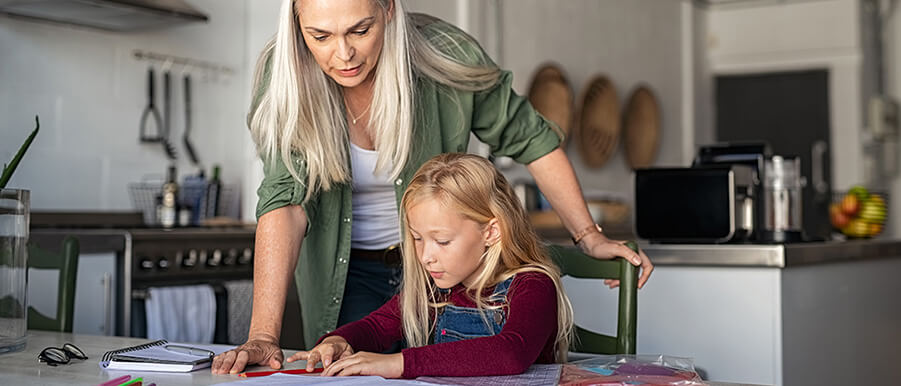 29 Nov 2020
29 Nov 2020
BY: admin
Counseling
Counselors that Take Medicaid in Denver
Counselors that Take Medicaid in Denver
One of the greatest barriers to treatment for people who need mental health counseling is price. Even with health insurance, many counseling services are not fully covered or must be paid for out of pocket. No one should ever have to suffer from mental health problems because of money; at Caring Heart Counseling, we accept a variety of insurance providers and Medicaid to make therapy as affordable and accessible as possible.
Quality Counseling Doesn’t Have to be Expensive
Some people are concerned that if a therapist offers free or discounted services, then they are not as qualified as more expensive counselors. This is simply not true. Many therapists and clinics recognize the gap between people who need therapy and those who can afford it. As a result, they incorporate lower services, sliding payment scales and Medicaid coverage into their practices.
The evolving mental health conversation has raised greater awareness about the diverse population in need of therapy. In the past, counseling was, like many help services, only accessible by those who had the privilege of financial ability. However, people who are on Medicaid and come from low-income backgrounds tend to suffer more from mental illness and personal struggles. The gap between people who need counseling the most and those who could routinely access it is still too great, and we are striving to change that.
How Counseling Can Help You?
Medicaid will not change the type of services you receive from your therapist. Every counselor who accepts Medicaid and offers affordable therapy provides the same level of care to all their clients. You will be able to relax in a safe space, knowing that your personal feelings, thoughts and problems are all respected and valid to your therapist.
Counseling can help you do everything from address mental illness symptoms to build life skills like stress control and time management. You do not need to be suffering from a mental illness to benefit from therapy. Counselors that take Medicaid in Denver offer a variety of services, including:
- • Individual talk therapy
- • Couples counseling
- • Children’s therapy and adolescent counseling
- • Virtual Counseling
- • Family Counseling
Contact Us to Learn More
If you are on Medicaid and interested in working with a licensed counselor in Denver, contact us today. We are always happy to answer any of your questions about counseling, payment and more. Contact Caring Heart Counseling to get started.
 27 Nov 2020
27 Nov 2020
BY: admin
Getting Help
10 Communities You Can Join in Colorado
10 Communities You Can Join in Colorado
Friendships are a big part of our social well-being. Making friends as an adult is challenging, especially during these trying times. But luckily, you can easily find groups online of like-minded people who host regular meetups. While you may have to wait to socialize face-to-face due to COVID-19, you can explore these 10 Denver-based groups for meetups to get plugged into the community and build new relationships.
Denver Friendship One
One of the largest Colorado meetup groups online, this group has over 6,400 members and routinely hosts events, adventures and communicates through emails and group chats. Activities include live music, cooking, hiking and a calendar of seasonal, scheduled events for anyone to join.
Black Women’s Alliance
For Black women in Denver who want to connect with others, the sisterhood of the Black Women’s Alliance is a powerful group with over 1,200 members. Find companionship, support and affirmation through connections with other Black women; participate in mindfulness meditations, presentations and more.
Nerdy 30s Ladies of Denver
Are you a woman who considers herself a homebody? Maybe you like reading more than going out, or you want a group of like-minded women you can chat to about all your nerdy passions and intellectual interests. They’re currently hosting virtual coffee and craft sessions you can join to make friends while you color, draw, build LEGOs or indulge any other creative outlet.
Denver Newbies Meetup
If you’re new to Denver and looking to meet new people in Colorado, this group has you covered. Adults in their 20s, 30s and 40s can mingle, socialize and get to know one another through a variety of activities. Recent events include online speed dating for professionals in their 20s and 30s and a new single friend mixer.
NAMI Boulder City
If you or someone you love needs mental health support, the Denver chapter of the National Alliance on Mental Illness hosts various free support groups every week, including a mental health support group, family support group and recovery group.
Strangers to Friends in Denver
This group’s motto is “People = possibilities!”. You can connect with over 4,000 people to make new friends, socialize and get to know others through virtual events like Zoom Movie Night.
Baby Boomers Social Club
Adults in the Baby Boomers generation (1946 and 1964) can meet others in their age group online. This active organization has over 3,300 members and is still growing. Making friends during your senior years is challenging, but groups like this can help you mingle and explore new interests.
Denver Young Professionals
Working professionals in their late 20s and 30s can network and meet new people through this group. The club is partnered with NetParty.com, a network of young professionals.
International Enneagram Association – Colorado Chapter
This group will help you learn more about yourself, improve relationships and meet others while learning about the Enneagram system and personality types. Online presentations and meetups cover a variety of topics.
Denver Dungeons & Dragons Newbies Sessions
Are you curious about the roleplaying game but never knew how to get started? Learn the ropes with other novices through this group. Routine online meetings and in-person sessions will teach you the basics through game sessions that typically span three to four hours each. Games are free, friendly and open to anyone who wants to learn how to play and meet others.
How to Bring Up Counseling to Your Teen
You can learn more about our teen counseling services and contact us anytime for more information. We’re also happy to provide you or your teen with personalized feedback about how we may help them address specific problems.
 26 Oct 2020
26 Oct 2020
BY: admin
Relationships
How to Talk to Your Teen About Counseling
How to Talk to Your Teen About Counseling
You want nothing but the best for your teenager, and it’s heartbreaking to watch them struggle mentally. Your child may have voiced their mental health problems, or you may notice from afar that something is off but have no idea how to intervene. Many parents worry about bringing up counseling to their child for fear it will send the wrong message.
Unfortunately, some parents have used the therapy as a threat, implying that it is a punishment and their teenager’s mental health struggles are a wrongdoing. We want to change the view families have about counseling and help you present it as not only a form of treatment or a “last resort” for serious issues.
We believe counseling is a tool for everyone, and it can be just as beneficial for treating problems as it can be at preventing them. If you are wondering whether counseling is right for your teen, here are some of the topics a counselor can address:
- • Self-esteem and confidence
- • Social skills, including making new friends and dating
- • Family relationships
- • Depression, self-harm and suicide risks
- • Anxiety
- • Substance use and addiction
- • Eating disorders
- • Sexuality and gender identity
How to Bring Up Counseling to Your Teen
Your child should feel like they are included in the decision to go to therapy. Counselors will face a greater challenge forming a connection with your teen if they have been essentially forced into talking against their will. Resistance to participate in counseling often stems from fear, embarrassment or shame about their struggles. To combat this, you should start a dialogue that is rooted in love and a desire to help your teen feel good about themselves.
You should start off by reminding your teen that you love and care about them. Just because they may not always be receptive to affection does not mean they don’t need it. In fact, adolescents are particularly sensitive to approval, so affirmation is essential.
Let them know what you’ve noticed about their behavior or mental health, but avoid coming at it from a critical standpoint. For example, you may say, “You’ve seemed really down lately, and I’ve noticed you’re spending a lot more time alone than usual. I need alone time when I feel down, too. Has this been helpful for you?”
Once you begin to understand your teenager’s experience and perspective, you can suggest counseling as one way for them to help themselves. You may share about therapy being helpful to you as well; it can also be beneficial to mention that you understand talking to you or other people can be difficult, and a counselor will listen without judging or violating your teen’s confidentiality.
Reach Out Together
Inform your teen about their options when it comes to counseling. We offer virtual online therapy for teens that is accessible and convenient for their schedule. Being able to talk to a therapist online can also make talking to a professional less intimidating. Let your teen know their options, and explore different counselors and forms of therapy together. Then, make the appointment and encourage your teen to play an active role in their own wellness.
You can learn more about our teen counseling services and contact us anytime for more information. We’re also happy to provide you or your teen with personalized feedback about how we may help them address specific problems.
 20 Oct 2020
20 Oct 2020
BY: admin
Relationships
Political Stress and Anxiety and How to Cope
Political Stress and Anxiety and How to Cope
Social media and the internet has made it possible for political news, messages and online activism to reach us anywhere, anytime. Americans are stressed, anxious and downright scared about the direction the country is headed, and it’s natural to feel an unwavering sense of unease as things continue to progress beyond your control.
Some therapists have begun calling the uptick of politically-induced symptoms “election stress disorder.” While this is not a clinical diagnosis, it gives a name to the extremely common and increasing number of symptoms people are turning to therapy for help with. If you feel tense or anxious before checking the news, compelled to always see what is happening in the headlines and experience stress or depression thinking about the political climate in America, you may be suffering from this condition.
How Politics Cause Anxiety
Anxiety stems from fear of a threat, either real or perceived, which activates the autonomic nervous system. This is the system responsible for the fight-or-flight response. More than a psychological fear or constant worry, anxiety changes how your bodily systems function. It puts your brain on “high alert,” constantly tense and waiting for something bad to happen. In psychology, this is known as hyper-vigilance. It can impact our ability to function on a basic level.
When you constantly worry about politics, you may likely bring up worst-case scenarios or dwell on fears about what will happen if the opposing candidate wins. You may even feel like you’re stuck choosing between the lesser evil, essentially hoping for a miracle but fearful that there is no “right choice.”
No one can decide who you should vote for or what you should believe in but you. However, there is a social tie to politics these days that influences everything from our relationships to our feeling of control and autonomy. Even dating apps have even incorporated a feature that allows members to display whether or not they’ve voted on their profiles, causing us to immediately judge people for their outward actions and affiliations rather than getting to know them and their views independently.
While there’s nothing inherently wrong with being passionate about government, over-emphasizing politics can not only damage your mental health but also become a barrier in your relationships.
Ways to Cope With Political Stress
The most important thing to do is distance yourself from the source of your problem without becoming avoidant. Rather than prohibiting any type of political news, moderate how much you read, and be picky about what forms of media you engage with. Watching analysis and opinionated videos may only heighten your stress, and you’re likely to feel worse rather than better after reading comments and engaging in heated online debates.
Make note of how often you think about, engage with and talk of politics. Obsessive thoughts can lead to compulsive behaviors, actions we feel like we have to do to eliminate feelings of distress. This thought cycle also causes you to feel less in control, which only heightens your need to look for external sources of validation.
Take a moment to write down your priorities in life, and see how they align with or conflict with your current relationship with politics. You might find that your differing opinions with relatives and friends are causing you to be more judgmental and intolerant, pushing you away from people who you love and care for because you think differently about certain subjects.
It’s okay to hold your own stance on things, and not everything has to be a debate. Therapy can also help you learn to balance your own views while coping with others’ opinions. A counselor can also help you work through your own underlying thoughts, unease and fears about the future in a constructive way that empowers you in the present moment. Contact us for more information.
 21 Sep 2020
21 Sep 2020
BY: admin
Virtual Counseling
Virtual Emotional Support Counseling for Seniors During Covid
Virtual Emotional Support Counseling for Seniors During Covid
Seniors are one of the most vulnerable groups impacted by COVID-19. Beyond the physical threat, there are serious emotional and mental consequences to quarantine and the pandemic that can negatively impact their health. Seniors who live in nursing homes or are unable to socialize or even leave their house to go about their normal routine.
We believe that there is no age when mental health doesn’t matter. Our virtual counseling services for seniors can provide much-needed support and company during a difficult time.
Risks to Senior Mental Health
The elderly population often experiences mental health problems due to changes in their physical health and environment. Many senior citizens who lived active lives have been confined to their nursing home facilities or homes without anyone to talk to; they are not able to receive as much exercise, mental stimulation or companionship as they were pre-COVID, which can lead to the development of depression and crippling loneliness.
Even those who have family nearby may not be able to see them face-to-face due to social distancing measures. While quarantine is in their best interest, it also places a barrier between them, their loved ones and the outside world.
Health anxiety is also a pressing concern; as many seniors 65 and older also have health conditions, they may be especially high-risk. Simple acts like taking the dog out or going to the supermarket can endanger them, which only leads to greater fear and chronic stress.
These compounded feelings can take a toll on their physical well-being, too. Poor mental health can weaken the immune system, which makes them even more susceptible to illness.
How Counseling Can Help
Virtual counseling provides mental health support at a safe distance. Seniors can connect with a licensed therapist who listens to their concerns and gives them space to process what they are going through. There is not always an answer to resolve someone’s difficult feelings; rather than striving to offer platitudes and false affirmations, we seek to provide reassurance through affirming one’s strength and resilience.
Seniors also have unique worries and needs that deserve to be treated with care and compassion. Our virtual counseling services encompass the unique challenges, anxieties and experiences of the senior population to ensure our services truly resonate with them.
Sometimes, all a senior citizen really needs is just someone to listen and talk to. We want to be there for them while also providing helpful tips they can implement to help themselves.
How You Can Help Your Loved One
Communicate as often as possible, especially if you are not able to physically see your loved one. You can offer to buy their groceries and leave them on their doorstep along with some disinfectant; drive-by greetings, social distance conversations with a mask and daily phone calls can help ease some of the loneliness seniors are facing during this time.
If you live with your senior relative or loved one, emotional support in the form of time spent together is the most valuable. Watch a television program they like, especially if it’s one from their youth that they enjoyed. Listen to their favorite music, do senior exercise videos together and share meals.
Most importantly, check in with how they’re feeling. Many seniors feel cast aside and ignored in today’s fast-paced, digital society. Counseling is just one way you can increase the emotional support in your loved one’s life, but the most valuable thing you can give them is your time and attention.
If you would like to learn more about us and our virtual emotional support counseling, please contact us today.
 16 Sep 2020
16 Sep 2020
BY: admin
Couple Counselling / Relationships
How to Talk to Your Partner About Couples Counseling
How to Talk to Your Partner About Couples Counseling
The decision to go to couples counseling is difficult. Although you may find it necessary, admitting that you need a professional’s help can feel like a personal failure. Couples might avoid the subject because it officiates the haunting feeling that things aren’t going as they should in the relationship.
But the only way to get better is to be honest. Bringing up the idea of couples therapy to your partner can be even more intimidating. You may not have talked about it, or you may fear that suggesting counseling only leads to greater confrontation and distance.
Although it is difficult, addressing the need for therapy when the need arises is always best. Waiting to get help only causes problems to continue and create a greater barrier between communication and intimacy. Couples counseling could be the step you and your partner need to rebuild and reconnect in your relationship.
Starting the Conversation
You should sit down with your partner and let them know exactly why you want to go to counseling. This requires a great deal of vulnerability and honesty, which can be hard to muster. But taking the first step can demonstrate to your partner how committed you are to them and the relationship.
Someone has to make the first move, though going to therapy is a mutual decision. Let your partner know that you love them, and explain what problems have led you to seek therapy without being accusatory.
Rely on I-statements to express yourself. Rather than saying, “You never talk to me anymore,” try, “I feel a disconnect between us, like we don’t talk as much as we used to. I don’t quite know how to reach you, and I’d like to work on that together. I miss sharing things with you.”
It’s important to explain how issues and actions on both sides impact you. Recognize your own partner’s feelings as well. A couples counselor will be there to honor both of your perspectives and your shared bond.
The conversation should also be centered around a goal that you can work toward together. Counseling is not a place to “fix” anyone, because none of us are broken or damaged. Instead, it brings greater awareness to problems and helps people find solutions using their unique strengths.
What Will Happen in Couples Therapy?
We will work with you to identify key issues in the relationship. We do not take sides, but instead opt to build greater trust and respect through mutual empathy. You will both be encouraged to listen with an open mind and heart and take accountability for your own actions.
To avoid falling into the same patterns of conflict, disconnect and avoidance, your therapist will guide the conversation to help you both learn to recognize and value each other’s side of the story. Unifying that story into a healthy, harmonious relationship is the ultimate goal.
Benefits of Couples Counseling
The greatest benefit of couples counseling for many is the opportunity to speak openly. It can be hard for couples to express themselves clearly in a relationship when there is anger, fear and anxiety clouding the connection between them. Therapy gives each person a place to be present, express themselves openly and discuss rather than judge and defend.
Couples from every age and walk of life can benefit from working with a counselor to improve their communication and build upon their strengths as individuals. It can be the stepping stone a couple needs to reach a deeper level of trust and intimacy that only comes from overcoming challenges together.
We offer both virtual and in-person counseling for couples seeking counseling. Click here to get in touch with one of our therapists.
 24 Aug 2020
24 Aug 2020
BY: admin
Relationships / Virtual Counseling
Elementary School Anxiety and How to Set Yourself up for Success
Elementary School Anxiety and How to Set Yourself up for Success
Elementary school is one of the most exciting times of childhood; your child may be headed into Kindergarten, or they could be gearing up for another year filled with its own challenges, triumphs and memorable moments. Watching your child grow can be bittersweet, and with the coronavirus pandemic underway, sending your elementary school student back to school can be downright terrifying.
Anxiety is a normal and often healthy part of parenthood; it causes you to step back, pay closer attention and be proactive. But it can also hinder your ability to promote healthy independence and resilience in your child. To combat the anxiety and stress of another school year, here are some tips to keep in mind.
Put Safety First
Schools that are reopening for the new year will likely have safety measures in place. Your child may be required to wear a face mask during the day, which could be met with some discomfort or resistance. Talk about the importance of wearing a mask; tell your child they have an important role to play, and wearing a mask helps them protect themselves as well as their teachers and friends.
Practice wearing a mask in extended durations before school resumes, and teach your child how to properly wash their hands and apply hand sanitizer. To make the new safety measures a little less scary, get your child involved by letting them pick out a mask with a fun design.
Placing masks on their favorite stuffed animals can be a good way to introduce the concept and make it more approachable for a child.
Separation Anxiety
Parents and students can both experience anxiety when it’s time to go back to school. Combat this as early as possible by building excitement around the first day and upcoming year. Listen to your child’s worries, and offer reassurance. Rather than saying, “Don’t be worried,” tell them that it’s okay to be nervous, and everyone feels afraid of new things sometimes.
As a parent, your anxiety may be palpable to your child, which makes coping with it on your own time imperative. You don’t want to transfer any fears into your elementary schooler; therapy is one way to work through your fears, but speaking with your partner, journaling and talking with parents can help, too.
No Friends
Isolation is difficult for anyone, but children are impacted tenfold by their social engagement at school. Your child may have been placed in a new classroom this year and not be with any of their friends; you may have images of them eating alone, getting picked last for gym or recess and standing on the sidelines. This is a natural part of growing up that, although difficult, is important to your child’s growth.
Not having any friends in class might be scary at first, but it’s a chance for them to develop social skills and learn how to cope with discomfort. Read books about making new friends, roleplay with toys and assure your child they can still connect with their old friends online and outside of the classroom.
Coronavirus Closures
We are not sure how the virus will impact the new school year; it’s best to speak with your child now and let them know things may change throughout the year. Plan ahead by talking about closures, what they mean and how your child will have to learn if the school does need to shut down temporarily. Let them know that school closing doesn’t mean they can’t talk to their friends or teachers.
As a parent, the best thing you can do is try to find as much flexibility as possible. In addition to looking after your own mental health, it helps to come up with a plan for childcare and education in the event of another closure. You may never have to use it, but thinking about potential solutions now can help lower anxiety by reducing “what ifs.”
We offer both virtual and in-person counseling for parents and children that can make the transition back to school easier. Click here to get in touch with one of our therapists.
 17 Aug 2020
17 Aug 2020
BY: admin
Relationships
Sending Your Kid to College During COVID-19
Sending your kid to college during COVID-19
As parents, it’s natural to worry about your college student when they leave home, especially if this is the first time they’ve ever been on their own. The coronavirus has made it even harder for parents to send their children off to college, and the anxiety can cast a black cloud over what should be a wonderful milestone.
Many colleges have delayed re-openings or have put safety measures in place to reduce the risk of the virus spreading. It would be more concerning as a parent if you weren’t worried about sending your kid to college during COVID. Learning how to manage this anxiety, however, is important to help you be as fully present and supportive as you want to be for your student.
Coping With Coronavirus Anxiety
COVID-19 makes most people nervous, but for many, it has caused paralyzing anxiety. For those with pre-existing conditions, a world with COVID-19 feels like a prison. Your house becomes your only safe space, but it can still be riddled with stress as your loved ones go out and potentially bring the virus back inside.
If everyone practices social distancing, good hygiene and wears a mask, the risk of infection is still extremely low. Your anxiety is normal, but if it’s making it difficult or impossible for you to adjust to the new way of living, professional counseling could help.
Our virtual services range from in-depth psychotherapy to personal counseling. We seek to not only address your concerns but validate them; we accept who you are and what you feel right now, and we want to pass that along to you, so you can begin finding strength in your ability to overcome this difficult time.
College Safety and COVID
Talking to your child about proper safety and prevention can also help dispel some of your own worries. Knowing they are fully aware of the risk and how to protect themselves can give you a small peace of mind.
Discuss the importance of social distancing, always wearing a mask and carrying hand sanitizer at all times. You can also offer them some more practical tips they may not have considered, such as:
- Wearing glasses to avoid eye contamination. Even non-prescription ones can provide a protective barrier.
- Avoiding public bathrooms.
- Reducing possible COVID complications by not smoking, exercising regularly and sleeping well.
- Boosting their immune system with a healthy diet. Smoothies are easy to make and are great alternatives for those who don’t like to eat raw vegetables or fruit.
- Saying no to crowds and get-togethers, especially with people they don’t know.
- Sterilizing phones, light switches, doorknobs and faucets daily.
Counseling to Treat College and COVID Anxiety
We are living through a historical, extremely stressful point in history. You deserve to feel like you have the skills you need to cope with your emotions, whatever they may be. Sending your child to college is emotional enough; you don’t need to struggle through fear and panic alone, too.
Reach out to us today to learn more about our counseling services. We offer flexible, virtual services designed to make professional help as accessible and comfortable as possible.
 17 Jul 2020
17 Jul 2020
BY: admin
Relationships
How to Talk to Your Children About Racism
How to Talk to Your Children About Racism
After the murder of George Floyd and the 2020 Black Lives Matter protests, all of us have reevaluated our own beliefs and become more aware of how deeply racism still impacts people today. Society is changing, and for many, America feels unstable and, as a result, unsafe.
Parents want nothing more than to give their children a peaceful, prosperous upbringing, but that feels difficult now with social justice and political conversations entering every sphere of life.
Talking to your children about racism is important for several reasons; for small children, it helps combat the development of implicit biases many of us grew up with and had to unlearn. For older children, it gives them a safe environment to ask questions, explore their thoughts and be guided toward an educated worldview.
It’s okay not to have all the answers, but that is not a reason to avoid the topic. By addressing racism at home, you can help your children feel understood, be more inclusive and grow up to be people who are able to stand up for equality and combat racial injustice.
When does racism begin?
Babies become aware of physical differences such as skin color as early as 6 months old. By age 5, children begin to show early signs of racial bias and preferences. This can evolve through a number of ways, including subconscious social conditioning in schools and predominant exposure to only one particular race in the media.
Children are far more aware of racism than parents think; it’s a part of society that they are exposed to at an early age. The goal for parents today should be to teach their kids how to combat racism by modeling and promoting inclusivity and celebrating diversity.
Children Under 5
For preschoolers and kindergarteners, it’s important to adapt to their emerging tendency of noticing differences. As they get older and more vocal, toddlers and young children are likely to ask questions or make observations. The old traditional response to this natural curiosity was to chastise or shush children whenever they pointed out a racial difference.
Although parents likely thought this was disapproving of the behavior, it actually creates a negative connotation with racial openness and curiosity. Rather than seeing diversity as something interesting, children receive the message that it is taboo and different equals bad.
You can create a more inclusive environment at home by introducing your child to more diverse toys and media. For example, buy a White, Black and brown baby doll for them to play with. Watch movies and read children’s books that feature Black, Asian and Hispanic main characters. When they ask questions, provide answers and listen to their thoughts. Focus on fairness and sending the message that we are all wonderful and equal no matter what we look like.
Elementary and Middleschoolers
Children in this age group are likely already familiar with the concept of racism. They may already have heard about it from peers, seen it on news or read headlines online. The internet can be a valuable tool, but it can also expose children to biased, sensitive and even graphic material that they are not yet ready to confront. Rather than being able to analyze and decide whether it’s valuable to them, children tend to perceive everything they read online as fact.
Use the web together to explore various media that discuss racism at an appropriate level. BrainPop is an educational platform that offers free resources to promote an antiracist education. Materials are divided by age and cover both historical events and figures such as Harriet Tubman, Jim Crow, Martin Luther King Jr., slavery and the Black Lives Matter movement.
Teens
Teenagers today are impassioned and politically aligned far earlier than their parents and grandparents were. Talk to them about their views, listen to their concerns and find ways to help them be a safe and peaceful activist. You should also tap into their emotions and ask them how they’ve been handling these events and the feelings they stir up. Anxiety, depression, frustration and fear are all normal and natural responses, but they need to be addressed with care.
Educate Yourself First
You may not even know how to start talking about racism because you have your own questions. The subject is so emotionally charged today that many people want to avoid it altogether. There is no perfect answer or cut-and-dry solution for discussing racism at home, but the best conversations come from a position of education and intellectual curiosity.
Start by reading up on the history of racism yourself. Read material by Black and other minority authors. And address your own stress, frustration and anxiety about the state of the world with people you trust. For some, the best source is a licensed therapist who knows how to guide conversations about difficult or challenging topics.
If you would like personal tips on how to talk to your children about racism, or if you need a safe space to confront your own struggles and concerns, we’re here for you. Contact Caring Heart Counseling today by clicking the button below.
 15 Jul 2020
15 Jul 2020
BY: admin
Relationships
Five Fun Family Road Trips from Denver
Five Fun Family Road Trips from Denver
Although the coronavirus has changed the way we travel and enjoy vacations, there are still adventures your family can have that keep everyone safe. To reduce the spread of COVID-19, it’s best to avoid any crowded areas with heavy foot traffic such as hotels and theme parks, even those that are open to the public. Instead, take in some of the gorgeous sights Colorado has to offer by planning a family road trip to some of these breathtaking locations a short drive from Denver.
Yellowstone National Park
The trip from Denver to Yellowstone is approximately 10 hours, making it the longest road trip on this list. If your family has a camper or RV, this is a great time to use it. The kids can unwind, play games and have fun during the ride while you take turns driving and enjoying the scenery unfold around you.
The fastest route to Yellowstone from Denver is via Interstate 25 and Interstate 80. On this trip, you’ll move through the picturesque Rockies and roaming landscapes teeming with nature and wildlife.
Great Sand Dunes National Park
Around 250 south of Denver lies America’s tallest sand dunes. You’ll feel like you’ve been transported to an exotic, faraway land as you gaze upon the dunes. Take a family hike or even go sand sledding; this is an excellent spot to practice safe summer social distancing while still getting to experience something new away from home.
You can cut through Colorado Springs on your journey, which lasts around four hours. If you head out early, this is a great one-day road trip that will have the kids excited all morning and sleeping on the way home.
Rocky Mountains
The Rocky Mountains are one of Colorado’s most beloved natural monuments with numerous hiking trails, scenic routes and wildlife. The Trail Ridge Road is a 48-mile highway that stretches through the mountains and peaks at 12,183 feet. A designated All-American Road, Trail Ridge offers your family ample opportunity to stop and pause to appreciate the view.
The Rocky Mountain National Park driving experience takes your family on an incredible journey surrounded by incredible landscapes and diverse ecosystems.
Glenwood Springs
Driving from Denver to Glenwood Springs will take you through Keystone, Copper Mountain and past the Arapaho and Roosevelt National Forests. The trip spans around two and a half hours, making it ideal for those who enjoy scenic trips but not long car rides. Families with babies or small children will especially benefit from this rewarding but comfortable road trip.
Once you reach Glenwood Springs, you can visit the famous Hanging Lake, which is currently open with social distancing restrictions. The family may simply enjoy taking the trip, singing their favorite songs and basking in the landscapes around them.
Santa Fe
A road trip from Colorado to New Mexico makes an excellent weekend getaway. The adventure features plenty of scenery, wildlife and beautiful canyons that illustrate the diversity of both states. The distance from Denver to Santa Ve is around six hours and features plenty of small towns, museums and historical sights in between.
When planning your family road trips, make sure that you plot an itinerary and check the current restrictions for every destination. Getting out in the sunshine is important even during the coronavirus, and road trips offer a safe way to travel that puts nature right in front of you.

